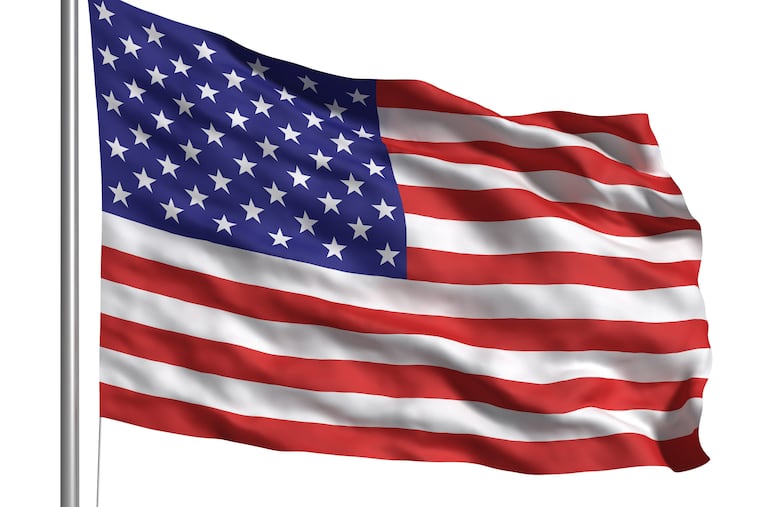Conservativism’s hidden history | Opinion
Historic differences continue to dominate the everyday battles of American public life, with liberals believing in universal principles and conservatives celebrating national culture.

What is conservatism?
Before reading an article with this title by Ofir Haivry and Yoram Hazony in a recent issue of American Affairs, I would have replied individual liberty, small government, and a robust foreign policy. Their article taught me a completely different and much deeper understanding.
Haivry and Hazony reveal a little-known intellectual history of English conservatism going back to the 15th century and Sir John Fortescue's In Praise of the Laws of England (c. 1470), followed by such outstanding thinkers as John Selden, Jonathan Swift, and Edmund Burke.
They advocated an outlook that respects tradition while intelligently adapting it to new circumstances; Haivry and Hazony call this historical empiricism.
Conservatives esteem what preceding generations have worked out – especially, the English Constitution and the Hebrew Bible. They see England's unique development of freedom as the happy result of such singular breakthroughs as the Magna Carta (1215) and the Petition of Right (1628).
Caution is the conservatives' byword: Look to the nation and religion for guidance; make sure to limit executive power and maintain individual freedoms. Judges – respect the original intent of documents. Politicians – if marriage has everywhere and always meant a union of man and woman — be very careful about fundamentally changing it. Governments – ensure that immigrants assimilate to the host culture.
Liberals, in contrast, are rationalists because they believe in each person's unlimited capacity to figure things out on his own. Tradition hardly counts: "Rather than arguing from the historical experience of nations, they set out by asserting general axioms that they believe to be true of all human beings, and that they suppose will be accepted by all human beings examining them with their native rational abilities."
Liberalism is two centuries younger than conservatism, dating back to John Locke's Second Treatise of Government (1689), in which Locke formulated supposed laws of nature which he blithely assumed apply to every human. Haivry and Hazony explain: "Liberalism is a political doctrine based on the assumption that reason is everywhere the same and accessible, in principle, to all individuals; and that one need only consult reason to arrive at the one form of government that is everywhere the best, for all mankind."
The danger here, of course, is that individual humans have some strange and blinkered ideas. Liberalism enfranchises ideas far removed from the sobriety of the English Constitution, starting with the French Revolution and ending with the totalitarianisms of our time. Proclaimed universal laws can justify any sins once unmoored from accumulated wisdom and experience.
Conservatives and liberals have battled for 300 years in the United Kingdom. Conservatives can point to the monarchy and the common law still standing as their accomplishments; liberals can point to uncontrolled immigration and at least 85 functioning Sharia courts.
A similar American debate exists. Conservatives included Alexander Hamilton, George Washington, and John Adams, liberals included Thomas Jefferson, Thomas Paine, and Andrew Jackson. Each side had its triumphs. The Declaration of Independence (1776) is a liberal document that holds various "truths to be self-evident," namely "that all men are created equal [and] that they are endowed by their Creator with certain unalienable Rights." The U.S. Constitution (1787) makes no mention of universal truths; rather, it translates key features of the English constitution for American use.
These historic differences continue to dominate the everyday battles of American public life, with liberals believing in universal principles and conservatives celebrating national culture. Thus, liberals want to transfer power to the United Nations, conservatives do not. Liberals eagerly welcome Somali immigrants, conservatives harbor doubts about their assimilation. Liberals are less religious, conservatives more so.
The two sides are evenly matched in American politics, with power regularly shifting back and forth. But in education and culture, liberalism dominates. In schools, for example, liberals teach liberalism and conservatives are nearly absent. This liberal hegemony means conservatives are routinely castigated as "illiberal" and therefore morally inferior; thus a recent Atlantic article asked, "Is American conservatism inherently bigoted?"
It also means, as Haivry writes me, that "while hundreds of prominent universities and institutes are devoted to examining the liberal tradition, none are dedicated to studying and developing the principles of Anglo-American conservatism. A few colleagues and I are trying to restore this great tradition, and we seek support to set up an institution devoted to this goal." May their project prosper.
Daniel Pipes is president of the Middle East Forum in Center City.